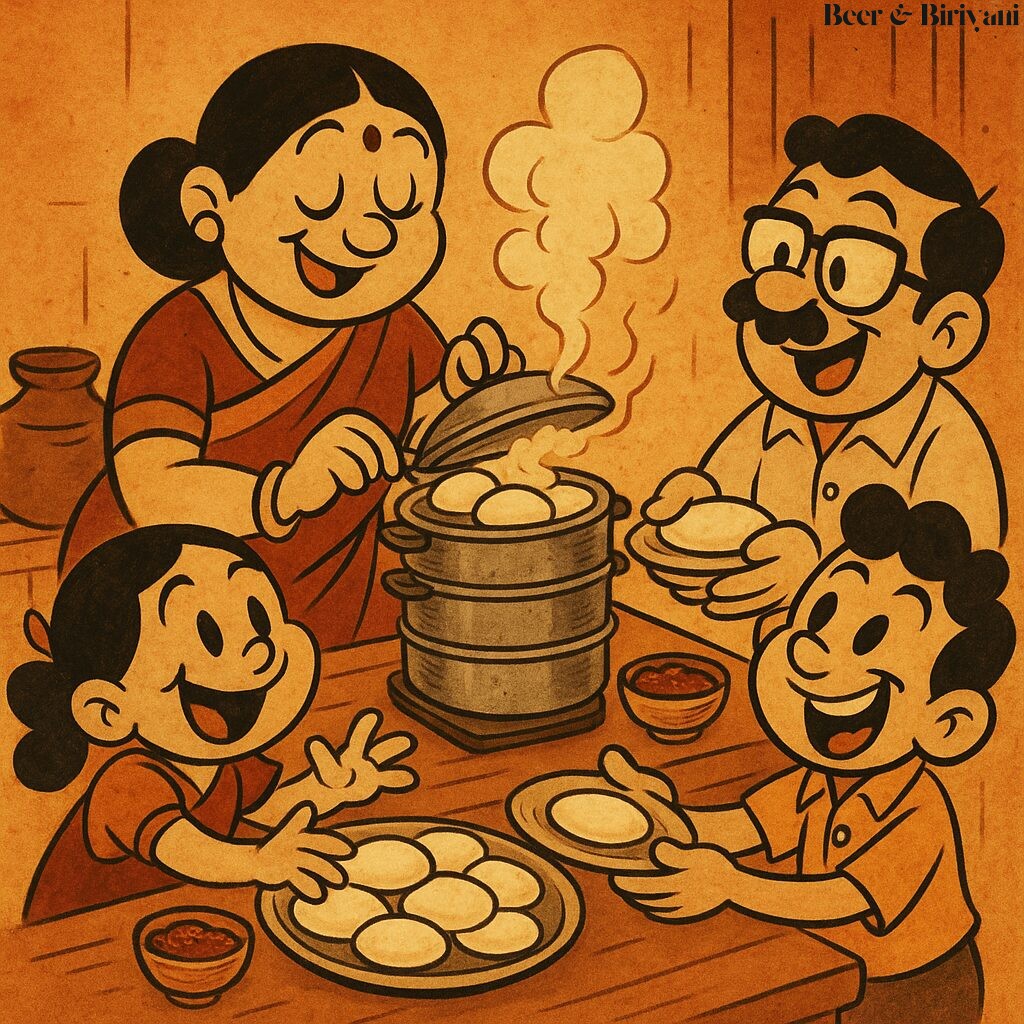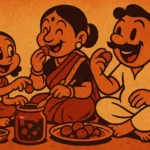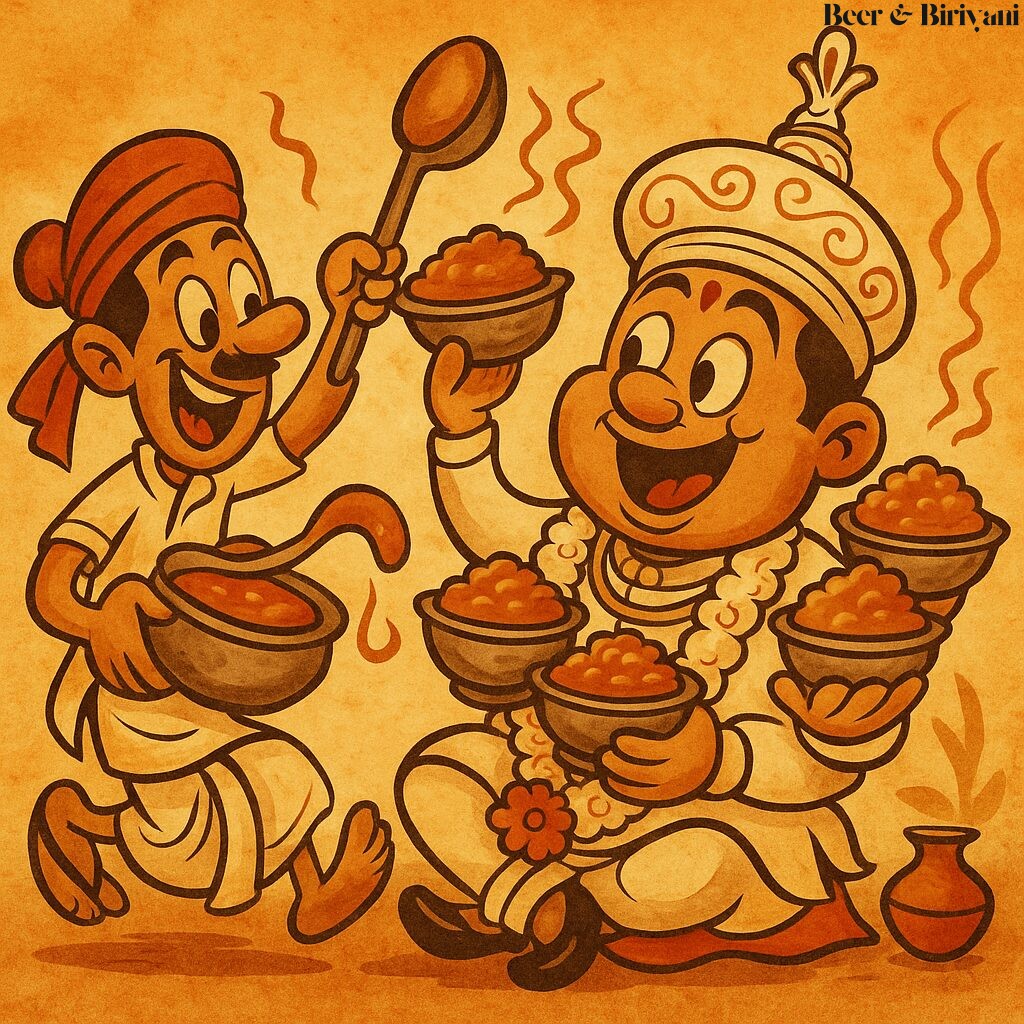It wasn’t a written rule. No one announced it, no one enforced it. But in our house in Mumbai, Sunday morning meant one thing and one thing only: idli. The soft, spongy, steamy kind served fresh from the cloth-lined steel plates of a battered old cooker that hissed like a sleepy uncle with a story to tell. There was no discussion, no debate. You woke up to the smell of fermented batter and roasted coconut. Your body knew what day it was before your brain did.
Now, living in Austin with my own family, I’ve tried to keep the tradition alive. It doesn’t always stick. Some Sundays we do waffles. Occasionally, a rogue breakfast taco. But when I do make idlis—proper, slow-risen, soft-to-the-touch idlis—it’s as if the walls shift slightly. Like the house exhales. And for a while, I’m back in that small kitchen, tiptoeing around a sleepy father reading the Sunday paper, and a mother who’s been up since 6 AM soaking urad dal “because Sundays are not for shortcuts.”
The Idli Itself
Let’s start with the obvious: a good idli is a miracle of minimalism. Rice and urad dal, soaked, ground, fermented, steamed. That’s it. No spices. No garnish. Just texture and technique. But within that simplicity lives a world of complexity. Fermentation depends on ambient temperature, grind consistency, water quality—even the mood of the batter. My mother would “talk” to hers: a stir here, a sniff there, a knowing glance at the surface bubbles. I used to think she was joking. Now I know she was negotiating.
We made idlis with the traditional ratio—four parts rice to one part urad dal—soaked separately, ground in that deafening old stone wet grinder, then left in the corner of the kitchen under a tea towel like a sleeping infant. My job as a kid was to check if the batter had “risen” in the morning. This, of course, was a trap. If I opened the lid too early, the cold air would ruin it. If I waited too long, it might over-ferment. Either way, I got blamed. A classic setup.
Family Roles and Rituals
Sunday breakfast had its own silent choreography. My father would set the table, always placing the chutney bowl to the right of the idli plate. My sister would toast the leftover molagapodi in ghee just enough to make the house smell like a Tamil wedding. And I’d steal the first idli the moment the cooker lid came off, claiming I was “checking for doneness.” It was always done. I just liked the steam on my face.
Everyone had their preference. My sister liked hers with extra coconut chutney. My father added a spoon of sugar to his sambar (blasphemy, in my opinion). My mother pretended not to care, but always saved the softest center ones for herself. The unspoken rule: don’t touch the second row of idlis until the elders have eaten. And never—never—mix chutney and sambar in the same plate. That was grounds for exile.
The Sacred Mundane
It’s funny how these rituals form. No one teaches them. They just happen. Repeated often enough, they become law. And the more I think about it, the more I realize: the idlis weren’t just breakfast. They were architecture. They held up the scaffolding of our week. A quiet return to center. A reliable softness after the hard edges of school days and work deadlines. Sunday was the day we started slow, talked more, and dipped our fingers into warm chutney while the morning stretched out like steam from the cooker.
Trying to Recreate It
In Austin, I use a modern grinder, a non-stick idli steamer, and a climate-controlled kitchen. And still, I check the batter like I’m pleading with it. Please rise. Please feel like home. Sometimes it works. Sometimes it doesn’t. But when it does—when that first idli slips from the mould like a soft sigh—I feel like I’ve won something deeper than breakfast.
My son eats his with ketchup. I tried to fight it. Failed. Now I just smile and sneak ghee into the batter when he’s not looking. One day, maybe, he’ll have his own version of this ritual. Maybe he’ll remember that Sunday mornings smelled different. That there was a day the house felt slower, warmer, and filled with unspoken rules that somehow made everything make sense.
And the Idlis Keep Coming
I don’t always get the texture right. Sometimes they’re too dense. Sometimes too sour. But every Sunday I try, I remember. And every bite pulls me back—not to a place, but to a rhythm. To the quiet choreography of family. To a kitchen where the batter rose in time with the sun. To a world where love didn’t need to be said, because it was already on the plate, round and warm and waiting to be torn by hand.
Born in Mumbai, now stir-frying feelings in Texas. Writes about food, memory, and the messy magic in between — mostly to stay hungry, sometimes just to stay sane.












